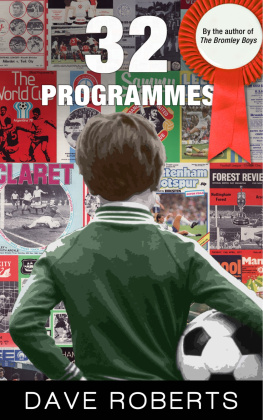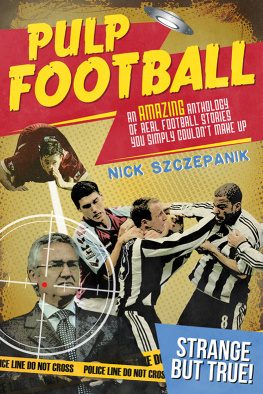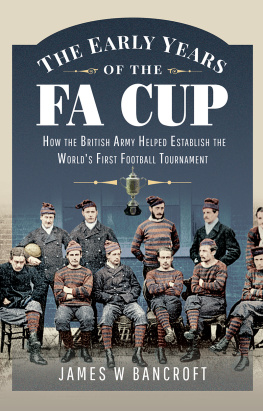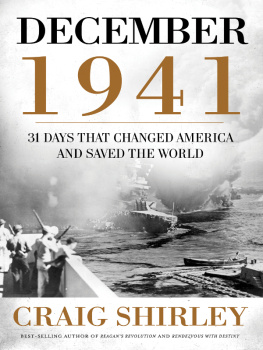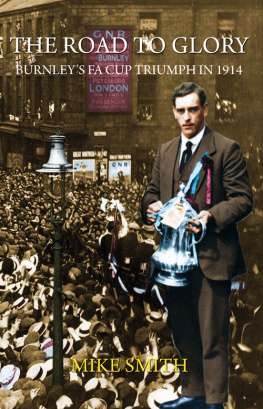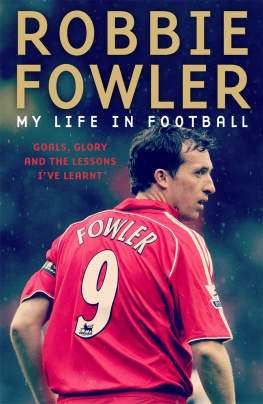First published by Pitch Publishing, 2020
Pitch Publishing
A2 Yeoman Gate
Yeoman Way
Durrington
BN13 3QZ
www.pitchpublishing.co.uk
Ian Davidson, 2020
Every effort has been made to trace the copyright.
Any oversight will be rectified in future editions at the earliest opportunity by the publisher.
All rights reserved under International and Pan-American Copyright Conventions. By payment of the required fees, you have been granted the non-exclusive, non-transferable right to access and read the text of this e-book on-screen. No part of this text may be reproduced, transmitted, downloaded, decompiled, reverse-engineered, or stored in or introduced into any information storage and retrieval system, in any form or by any means, whether electronic or mechanical, now known or hereinafter invented, without the express written permission of the Publisher.
A CIP catalogue record is available for this book from the British Library
Print ISBN 9781785316845
eBook ISBN 9781785317569
---
Ebook Conversion by www.eBookPartnership.com
Index
Foreword
I can well remember the approach of late December back in 63 with much trepidation. A year earlier snow had started falling on Boxing Day and the temperatures stayed below freezing for weeks. It was arguably the worst winter of the 20th century. For a football-mad teenager the frustration seemed never ending, unable to play and no games to watch.
There was no undersoil heating then, though Leicester City earned the title of Ice Kings thanks to an imaginative groundsman who laid down straw on their pitch and stayed up all night putting fuel on braziers. The Foxes managed to fulfil their home fixtures and might have won the league, but the consequent imbalance of away games towards the end of a season which was extended until June became too big a hurdle.
Happily, there was no repeat of that Siberian spell a year on. The programme of top-level football at that time in the football calendar has never before or since seemed so festive. My personal memory is of the two games between West Ham and Blackburn Rovers. The 2-8 scoreline on 26 December made huge headlines and the 3-1 reverse two days later probably spawned the clich, which still exists today, that you get strange results over Christmas.
A full programme of Football League fixtures on Christmas Day itself had only recently been discontinued. No public transport was the main reason, although all these years later fans manage to travel up and down the country on Boxing Day when trains and buses do not run. One other difference in the schedule concerned New Years Day. It was not deemed a public holiday in England until the mid-70s, so the week leading up to the third round of the FA Cup on the first weekend in January was much freer for rest, recovery and preparation after the hectic schedule around Christmas.
One prevailing condition in 1963 was the wind, the wind of change. The maximum wage, a Football League salary cap, had been challenged in the courts by the Professional Footballers Association and the players had won. Ties that had bound a footballer to a club for as long as that employer chose to keep him were also broken.
Tactically, there was more freedom too. New formations were being tried as the old 2-3-5 W-M system was being phased out. Managers who were often seen in trench coats and trilby hats now put on tracksuits. Kit was made of lighter material, particularly the boots and the ball.
By December 1963, Alf Ramsey was installed as manager of England and was embarking on a journey which would take England to lifting the World Cup. George Best had made his debut for Manchester United in the September and the first seeds of celebrity footballers were sown. The 60s had started to swing. Football has always reflected society and in my young mind at that time there was a great connection between the mood of the country and the national game.
At 18, in 1963, I was very innocent compared to that age group today and with hindsight I think football was too. The events of late December 1963 reflect that. Grinding out wins did not seem to be part of the culture, though that would soon change. Make no mistake, the bonuses for winning were still important for the top-level professionals, who were still essentially working-class men, but the scrutiny over results was far less intense.
In-depth analysis was on the way. Even Ramsey faced heavy criticism before the World Cup three years later, though he had the last laugh. Football was becoming much more pragmatic. No wingers for England after the group stage and in those six triumphant games the tournament winners scored only 11 goals, four of them in the final, and two of those in extra time.
In that context the extraordinary goal-crammed First Division games of late December 1963 do represent the end of an era. Those stories which have been exhumed for this excellent book richly deserve to be commemorated.
Read on
Martin Tyler
Football Commentator Sky Sports
Introduction
Late December Back In 63 The Day Football Went Crazy , gives you the inside story of one of the most dramatic days in the history of top-flight English football. On Boxing Day 1963, an incredible 66 goals were scored in the ten fixtures played and a host of club and personal records were broken, including:
Record home win
Record away win
Record match aggregate
Three players scored four goals
Eight hat-tricks
And one missed penalty
That day, 157 goals were scored across the whole Football League and the reasons why goals were plentiful will be examined, along with the characters who starred that day and the social and sports history prevalent at that time.
Furthermore, a chapter is dedicated to the players who won the World Cup for England only two and a half years later read how their respective careers were developing and how the seeds of Englands World Cup triumph of 1966 were being sown.
You will also read about the first goal of a future legend of the game perhaps the best there has ever been. Can you guess who that could be?
But first of all, to give sport some context, lets set the scene as to what life was like in 1963. Enjoy this trip down Memory Lane!
On Boxing Day 1962 it rained and snowed heavily.
On Boxing Day 1963 it rained goals!
Before we get stuck into the football on Boxing Day 1963, it is worth spending a few minutes wrapping some context around the day by exploring:
the global and domestic scene
the lot of the players in 1963
the English First Division football structure
the very limited media profile football had back then


